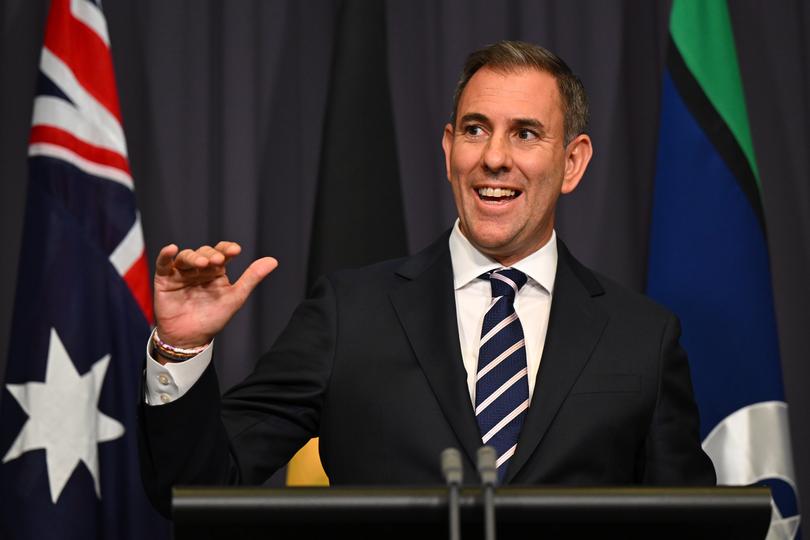AARON PATRICK: RBA’s 2025 interest rate cut’s biggest impact could be on property prices
AARON PATRICK: Home prices could rise 10 per cent this year, according to a forecaster, as Australians become more optimistic about the economy.

A few minutes after the Reserve Bank of Australia cut official interest rates to 4.1 per cent Tuesday, property-finance entrepreneur Mark Bouris turned on the Village People’s YMCA in his office and began dancing.
The celebration illustrated the dual power of monetary policy: while falling interest rates make loans cheaper, they also make people feel more optimistic.
The effect of the former will not be trivial. The average home loan is going to be cut by around $1500 a year, about enough for a new 190cm flat screen LED television from Harvey Norman.
Sign up to The Nightly's newsletters.
Get the first look at the digital newspaper, curated daily stories and breaking headlines delivered to your inbox.
By continuing you agree to our Terms and Privacy Policy.The greatest wealth increase, though, could come from a shift in Australians’ gloomy feelings about the economy.
Property price surge
Lous Christopher, a top property forecaster, predicts the rate cut will trigger a six-to-ten per cent increase in house prices this year. In Perth, the hottest market, the increase could be as high as 20 per cent after last year’s 19 per cent increase, he says. In Brisbane, 16 per cent, and 6 to 7 per cent in Melbourne and Sydney.
“In short, (we have) a strong conviction the housing market is going to rally,” he told The Nightly.
Given the average Australian home is worth around three quarters of a million dollars, the typical owner would be $62,000 wealthier by the end of the year if Christopher’s mid-point forecast eventuates.
Which is a problem for Reserve Bank governor Michele Bullock. At a press conference in Sydney after the announcement, the economic policy chief emphasised one important message: do not bank on more rate cuts soon.
Inflation is not under control
Facing huge political pressure to cut - pressure the central bank swears is irrelevant - the Reserve Bank seized upon a modest inflation deceleration at the end of 2024.
But not enough jobs were shed to make the central bank confident inflation is under control.
Which is why, even though the financial markets see two more rates coming, Bullock tried to lower expectations that come Christmas Australians will have enough extra cash to buy organic light-emitting diode TVs rather than the cheaper and apparently inferior LED versions.
“I want to be very clear that today’s decision does not imply that further rates cuts along the lines suggested by the market are coming,” Bullock said. “We have to be careful not to get ahead of ourselves.”
The dangerous wealth effect
A terrible outcome, from Bullock’s perspective, would be a surge in property prices triggering the “wealth effect,” where prosperous-feeling home owners start splurging on cars, kitchen appliances or restaurant meals.
The extra spending would put upward pressure on inflation, which remains stubborn in some areas. The cost of education, for example, rose 6.5 per cent last year. Insurance and bank fees rose 5.4 per cent.

The rate cut politics are a paradox. The Labor government, which economists say has exacerbated inflation through spending, is likely to reap the political benefits.
Treasurer Jim Chalmers took a couple of hours to claim credit for the decision. “This is the soft landing that we have planning for and preparing for,” he said.
Liberal leader Peter Dutton advocated for the cut because, he said, “families need relief”. Now delivered, he will be required to welcome it, even though it undermines one of his most potent arguments: that the government is a poor economic manager.
The losers
There were other losers too. Only a third of Australians have mortgages. Many mortgage-free retirees who survive on investments, including interest-paying bonds, can expect less income.
Share investors, which includes anyone with a superannuation fund, did not have a great day either.
Threatened by the prospect of a public shaming by the government, ANZ, Commonwealth Bank of Australia, National Australia Bank and Westpac promised to pass on the cuts within minutes of the Reserve Bank announcement. Their share prices fell in response to the self-imposed profit cuts.
The bond market sees the next rate cut in July. If that happens, Mark Bouris won’t be the only one dancing.

